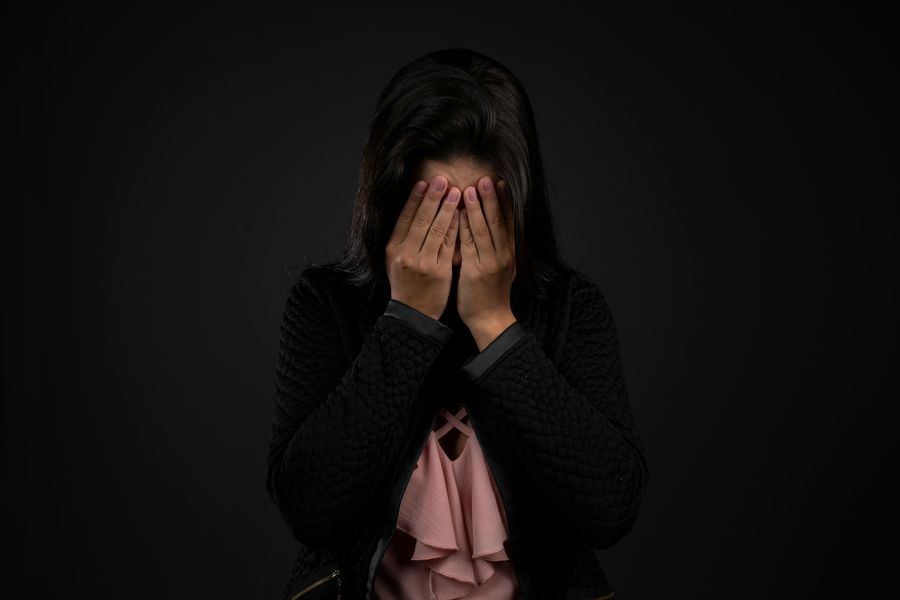Understanding Ugly Duckling Syndrome
Have you ever felt like you didn’t belong or that you weren’t good enough? Maybe you were bullied or discriminated against because of your appearance or other factors beyond your control.
If so, you may be familiar with the “ugly duckling syndrome” – a term used to describe the experience of feeling like an outsider or an underdog. The origins of the ugly duckling syndrome can be traced back to the eponymous fairytale by Hans Christian Andersen.
In the story, a young duckling is ridiculed and ostracized by his peers because of his homely appearance. However, as he grows up, he transforms into a beautiful swan, ultimately finding acceptance and admiration from those who previously spurned him.
While the ugly duckling story may seem uplifting on the surface, it actually perpetuates harmful ideas about beauty and worthiness. It implies that one’s value is tied to their appearance and reinforces the toxic notion that inner beauty is only appreciated once it is visible on the outside.
Reconciling with past judgment and finding self-acceptance
If you have experienced the pain of being judged or excluded because of your looks or other factors, it can be difficult to move past those feelings and embrace your authentic self. However, it is possible to heal from past trauma and find self-acceptance.
One key step in this process is learning to let go of the hurtful words and actions of others. While it’s natural to feel angry or hurt by mistreatment, holding onto those feelings can prevent you from moving forward and finding joy in life.
Instead, try to focus on the positive aspects of yourself and your personality. Whether it’s your sense of humor, your kindness, or your unique talents, there are many things that make you special and worthy of love and respect.
Another important aspect of self-acceptance is learning to be compassionate with yourself. It’s easy to be our own worst critic, but doing so only reinforces the negative beliefs we may have internalized about ourselves.
Instead, try speaking to yourself with kindness and empathy, as you would to a friend who is going through a difficult time.
The toxic portrayal of the syndrome in media
While the ugly duckling story may have some positive aspects, it has been co-opted by popular media to create a harmful narrative about beauty and self-worth. Movies and TV shows that feature “makeovers” as the solution to a character’s problems perpetuate the idea that one’s value is tied to their appearance and reinforce harmful stereotypes about marginalized communities.
Additionally, these portrayals often present the obstacles faced by the protagonist as minor inconveniences that can be easily overcome with some new clothes or a haircut. This simplistic portrayal fails to address the systemic discrimination and mistreatment that many people experience based on factors beyond their control.
The Effects of Ugly Duckling Syndrome
The lasting impact of bullying and discrimination
The experience of being bullied or discriminated against can have long-term effects on a person’s mental health and well-being. For instance, it can lead to depression, anxiety, and other mood disorders, as well as physical symptoms such as headaches and stomachaches.
In addition, the social isolation that often results from mistreatment can have negative effects on a person’s self-esteem and sense of worthiness, further amplifying feelings of unworthiness or not being enough.
Feeling of not belonging and not being enough
When one is continually discriminated against, the sense of not-belonging grows into them which often leads to self-doubt. It’s important to remember that one’s worth is not tied to the opinions of others in order to overcome this negative feeling and begin to accept oneself.
Negative self-image and doubt in one’s abilities
When subjected to constant ridicule, it’s easy to develop a negative self-image which involves questioning their own abilities and talents, thinking they aren’t enough. In order to heal from this, it’s important to affirm oneself and focus on their strengths, rather than weaknesses.
At the end of the day, nobody deserves to be mistreated because of their looks or any other factor beyond their control. It’s important to remember that everyone has inherent worth and value, and that true beauty is more than skin deep.
By embracing self-acceptance and rejecting harmful ideas about beauty and worthiness, we can move towards a more compassionate and inclusive society.
3) Overcoming Ugly Duckling Syndrome
Have you ever felt like you’re not special or that you will never measure up to those around you? Do you find it difficult to accept compliments or feel like you doubt your opinions and motives?
If so, you may be suffering from the “ugly duckling syndrome.”
To overcome this syndrome, it’s important to recognize and reject false beliefs of inferiority. To do this, try to focus on the things that make you special and unique.
What are your hobbies, talents, or interests? What do people compliment you on?
By recognizing these things about yourself, you can begin to believe that you are special and deserve to be loved and accepted. Another key aspect of overcoming the ugly duckling syndrome is fighting self-doubt and valuing your own opinions.
When you feel self-conscious or doubt your motives, try to ask yourself why you’re feeling that way. Is it because you genuinely think your idea isn’t good, or is it because you’re afraid of rejection?
By being honest with yourself, you can learn to trust your instincts and opinions, making it easier to stand up for yourself and make decisions that are right for you. Finally, building self-love and emotional connection can help you overcome the belief that you’re not good enough.
By allowing yourself to be vulnerable and opening up to others, you can build stronger relationships and learn to love yourself in the process. This means accepting yourself, flaws and all, and recognizing the beauty within yourself.
4) Beauty and Worth
When we talk about beauty, what comes to mind? Do we immediately think of someone who is good-looking or attractive?
If so, we may be perpetuating harmful ideas about beauty and worth. While there’s nothing wrong with wanting to look good, it’s important to remember that beauty is not the same as worth.
Just because someone doesn’t fit into society’s narrow standards of beauty doesn’t mean they’re not valuable or deserving of love and respect. Additionally, the concept of ugliness is nothing more than a social construct.
When we bully or discriminate against someone for their appearance, we are perpetuating harmful ideas about conformity and ostracization. It’s important to celebrate our differences and recognize that we are all unique and special in our own way.
Of course, this doesn’t mean we can’t or shouldn’t work on improving ourselves. Self-improvement and self-care are important aspects of personal growth and can boost our confidence and self-esteem.
However, it’s important to remember that physical appearance is just one aspect of who we are – it doesn’t determine our worth or value as human beings. Instead of focusing solely on our outward appearance, let’s strive to cultivate inner beauty as well.
This means developing qualities like empathy, kindness, and compassion, and working to build meaningful relationships with those around us. By doing so, we can create a world that values all people for who they are, regardless of their appearance or background.
In conclusion,
The ugly duckling syndrome is a real experience that many people go through, but it’s important to remember that we don’t have to let it define us. By recognizing and rejecting false beliefs of inferiority, fighting self-doubt and valuing our own opinions, building self-love and emotional connection, and understanding that beauty and worth are not the same thing, we can overcome the harmful effects of this syndrome and embrace our authentic selves.
5) Conclusion
The ugly duckling syndrome is a pervasive cultural phenomenon that affects people of all ages and backgrounds. The origins of this syndrome can be traced back to Hans Christian Andersen’s fairy tale, which has been perpetuated by popular media to enforce harmful ideas about beauty and worthiness.
However, it’s possible to overcome this syndrome through self-love, self-acceptance, and valuing oneself and others. One of the most harmful aspects of the ugly duckling syndrome is the lasting impact of bullying and discrimination on a person’s mental health and well-being.
Many people who have experienced bullying as children or teenagers may carry that trauma with them into adulthood, leading to social anxiety, depression, and other mental health issues. To overcome this, it’s important to find one’s place and people who value them.
Whether that’s through joining a supportive community or pursuing hobbies and interests that bring joy and fulfillment, finding validation and appreciation from others can go a long way in helping to heal the wounds of the past. It’s also important to recognize that healing from the ugly duckling syndrome is an ongoing process that requires self-compassion and kindness.
This means being patient with oneself, accepting imperfections, and working towards growth and personal development in a non-judgmental way. In conclusion, the ugly duckling syndrome is a real and painful experience for many people, but it’s possible to overcome it through self-love, self-acceptance, and valuing oneself and others.
By recognizing the harmful effects of bullying and discrimination, and working towards building supportive and affirming relationships, we can create a world that values all people for who they are. In conclusion, the ugly duckling syndrome is a complex and pervasive issue that affects individuals of all ages and backgrounds.
From feeling like an outsider to experiencing bullying and discrimination, the negative effects of this syndrome can have lasting impacts on a person’s mental health and well-being. However, by recognizing and rejecting false beliefs, fighting self-doubt, building self-love and emotional connection, and understanding that beauty and worth are not the same thing, we can overcome the harmful effects of this syndrome and embrace our authentic selves.
It’s important to value ourselves and others for who they are, rather than conforming to damaging cultural norms that perpetuate hate and intolerance. By finding our place and people who value us, we can create a world that prioritizes kindness, compassion, and inclusivity.



